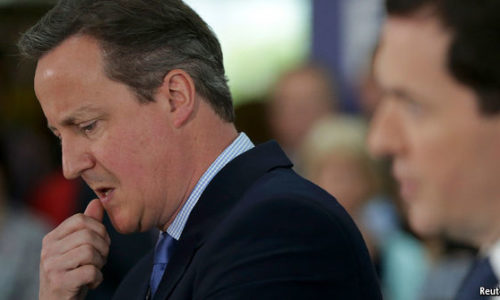
BRITAIN has voted for Brexit. What happens now? Nothing immediate, is the answer for EU nationals living in Britain and Britons living elsewhere in the EU, as well as for businesses on both sides of the Channel. It will all depend on negotiations that could take years—and no one is sure quite how many years, because the only precedent is Greenland, with a population today of around 50,000, which voted to leave in 1982. The first aim of David Cameron, the prime minister, will be to calm the markets. In Asia they have already responded to the news. The pound plunged by 9% against the dollar and as much as 13% against the yen, traditionally a bolthole for anxious investors. Japan’s main stockmarket tumbled by almost 8%. London’s stockmarket opens at 8am, and the FTSE 100 is likely to dive. Some experts warn that sterling could fall by as much as 20% overall. The chancellor of the exchequer, George Osborne, must now decide whether to issue an emergency “Brexit budget” as he controversially promised before the poll.
Mr Cameron has promised that Britain would immediately invoke article 50 of the Lisbon treaty, which sets a two-year timetable to agree the terms of departure. But uncertainty about his own position could raise questions about this. If he steps down and a Brexiteer takes over as leader of the Tory party and as prime minister, he or she is likely to argue that Article 50 is biased against the interests of a country leaving the EU. Under Article 50, the terms of Britain’s departure would be agreed by the other 27 EU countries, without a British vote. So Brexiteers would prefer to negotiate informally, without invoking Article 50. The other 27 countries are unlikely to go for this.
The kind of deal offered is a longer-term question, with neither main option very palatable. The first is to become like Norway, which is a member of the European Economic Area (EEA), in return for which it is required to contribute to the EU’s budget and allow the free movement of people. The second is to opt out entirely, trading with the EU under the rules of the World Trade Organisation like America, China or any other country. Most economists agree that this would do more damage to the British economy.
It will be hard for Mr Cameron himself to continue, though he may decide to remain prime minister over the summer in order to smooth the transition to a new Tory leader. The candidates for that post will be revving up their engines: Boris Johnson, a former mayor of London, triumphant from the Leave victory; the chancellor, George Osborne, perhaps too wounded by his attachment to the Remain side; and compromise candidates such as Theresa May, the home secretary, who made herself scarce during the campaign. The next leader will have to deal with a deeply divided party and with a Parliament whose MPs mostly supported Remain, and some of whom may want to block approval of full economic secession. Mr Cameron hoped his referendum would settle the question of Europe within the Conservative Party once and for all. It has done the opposite, and the storm is only just beginning.

No comments:
Post a Comment